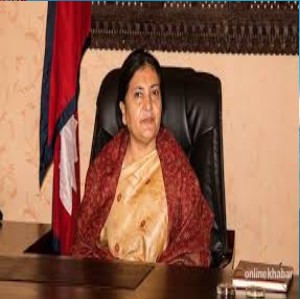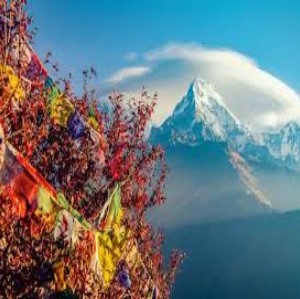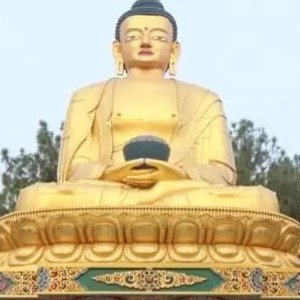
Government
Nepal is a representative democracy. The capital is Kathmandu. The president of Nepal serves as chief of state, while the prime minister is head of government. A Council of Ministers fills out the executive branch. Nepal has a unicameral legislature, the Constituent Assembly, with 601 seats. The current president is Ms. Bidhyadevi Bhandari and Mr. Sher Bahadur Deuwa is Prime Minister.

Economie
Despite the potential for tourism and energy production, Nepal remains one of the poorest countries in the world. More than a third of Nepal people live below the poverty line. Agriculture employs more than 75% of the population and produces 38% of GDP. The primary crops are rice, wheat, corn and sugarcane.
Nepal exports clothing, carpets, and hydropower. The civil war between the Maoist rebels and the government, which began in 1996 and ended in 2007, has led to a sharp decline in Nepal's tourism industry.

Climate
Nepal, the country of Asia, is located along the southern slopes of the Himalayan mountain ranges. It is a landlocked country located between India to the east, south and west and the Tibet Autonomous Region of China to the north.
The southern Tarai is tropical/subtropical, with hot summers and warm winters. Temperatures reach 40°C in April and May. The monsoon floods the region from June to September. The central hill lands including the Kathmandu and Pokhara valleys have a temperate climate and are also affected by monsoons. The north, the high Himalayas are increasingly cold and dry as the altitude increases.

Population
Nepal is home to approximately 29,000,000 people. The population is primarily rural. Kathmandu, the largest city, has a population of less than one million. The demographics of Nepal are complicated not only by dozens of ethnic groups but by various castes. In total, there are 103 castes, the largest being Indo-Aryan castes: Chhetri with 15.8% of the population and Bahon with 12.7%.

Language
According to the Nepalese constitution, all national languages can be used as official languages. There are more than 100 languages recognized in Nepal. The most commonly used are Nepali (Gurkhali or Khaskura), which is spoken by nearly 60 percent of the population, and Nepal Pasa (Newari).

Religion
Nepal is a primarily Hindu country, with more than 80% of the population adhering to this religion. However, Buddhism at about 11% also exerts a significant influence. Buddha, Siddhartha Gautama, was born in Lumbini, southern Nepal. In fact, many Nepalese combine Hindu and Buddhist practices; The two religions share many temples and shrines, and both Hindus and Buddhists worship certain deities.
